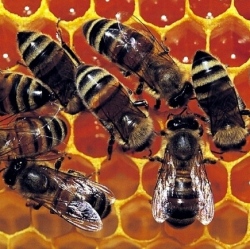
When we get the feeling of "being full," it’s because our gut has released hormones that tell our brain to stop being hungry. It would seem to follow, therefore, that people who overeat might benefit from producing greater amounts of those hormones. Well, that’s just what an experimental new food additive is claimed to cause the body to do.
Developed by scientists at Imperial College London and the University of Glasgow, the additive is known as inulin-propionate ester (IPE). It contains a fatty acid known as propionate, which is produced naturally in the gut when dietary fiber is fermented by microbes. Propionate is also what’s responsible for stimulating the gut to release the appetite-regulating hormones.
The idea behind IPE is that it will cause users to produce more propionate, and thus more of the hormones, than would be possible with a regular diet, that is, one that isn’t extremely high in fiber. This means they’ll need to consume less food in order to feel satiated. In one test, 20 volunteers were given either IPE or simply a dietary fiber called inulin, then turned loose on an all-you-can-eat buffet. Members of the IPE group ate an average of 14 percent less food than the inulin group, and had higher levels of the associated hormones in their bloodstream.
In a subsequent experiment, 60 overweight test subjects were divided into two groups, and once again given either IPE or inulin. This time, it was in the form of a powder that they added to their food over a 24-week period. Out of the 25 IPE subjects who completed the study, only one gained more than three percent of their body weight, by contrast, six members of the inulin group did so. Additionally, while four people in the inulin group gained over five percent of their body weight, no one in the IPE group did.
